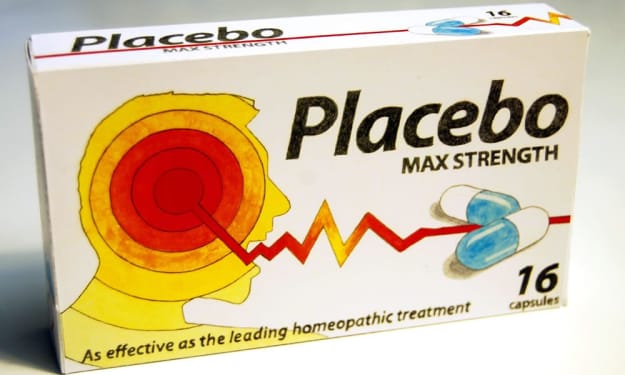How to improve memory?
Ways to improve memory

Introduction:
Memory is one of the most important cognitive abilities that allows us to store and retrieve information. Having a good memory can help us excel in our studies, work, and personal lives. However, with age and other factors, our memory can decline, making it more challenging to remember things. Fortunately, there are several techniques and strategies that can help us improve our memory. In this article, we will explore some effective ways to enhance our memory.
Practice Mindfulness and Meditation
Mindfulness and meditation have been shown to improve memory and concentration. A study published in the Journal of Cognitive Enhancement found that individuals who practiced mindfulness meditation for eight weeks had significant improvements in working memory capacity. Mindfulness involves being present in the moment, and meditation can help calm the mind and reduce stress, which can also contribute to improved memory.
Exercise Regularly
Physical exercise is not only beneficial for our overall health but also our brain function. Exercise has been shown to increase the production of a protein called brain-derived neurotrophic factor (BDNF), which helps promote the growth of new brain cells and connections. In a study published in the Journal of Alzheimer's Disease, researchers found that older adults who engaged in moderate-intensity exercise had better memory recall than those who were sedentary.
Use Mnemonic Devices
Mnemonic devices are memory aids that can help us remember information more effectively. One popular mnemonic device is the method of loci, which involves associating items with specific locations. For example, if you needed to remember a list of grocery items, you could associate each item with a different room in your house. Another mnemonic device is acronyms, which involves creating a word or phrase from the first letter of each item you need to remember.
Get Adequate Sleep
Sleep is crucial for memory consolidation, which is the process of moving information from short-term to long-term memory. Inadequate sleep can impair memory consolidation and make it more challenging to remember things. Aim to get 7-9 hours of sleep per night, and avoid screens and stimulating activities before bedtime.
Challenge Your Brain
Challenging your brain with new and stimulating activities can help improve your memory. Activities like learning a new language, playing an instrument, or solving puzzles can help keep your brain active and engaged. In a study published in the Journal of Aging Research, researchers found that older adults who engaged in mentally stimulating activities had better memory and cognitive function.
Conclusion:
Improving your memory takes time and effort, but it's worth it for the benefits it can provide in your personal and professional life. By incorporating mindfulness and meditation, exercise, mnemonic devices, adequate sleep, and brain-challenging activities, you can enhance your memory and cognitive function.
References:
Mrazek, M. D., Franklin, M. S., Phillips, D. T., Baird, B., & Schooler, J. W. (2013). Mindfulness training improves working memory capacity and GRE performance while reducing mind wandering. Psychological Science, 24(5), 776-781.
Erickson, K. I., Prakash, R. S., Voss, M. W., Chaddock, L., Hu, L., Morris, K. S., ... & Kramer, A. F. (2011). Brain-derived neurotrophic factor is associated with age-related decline in hippocampal volume. Journal of Neuroscience, 31(37), 12803-12810.
Baker, L. D., Frank, L. L., Foster-Schubert, K., Green, P. S., Wilkinson, C. W., McTiernan, A., ... & Craft, S. (2010). Effects of aerobic exercise on mild cognitive impairment
Karp, A., Paillard-Borg, S., & Wang, H. X. (2012). The role of education in the relationship between age of onset of Alzheimer's disease and cognitive performance. Psychology and Aging, 27(1), 179-186.
Rahe, J., Petrelli, A., Kaesberg, S., Fink, G. R., Kessler, J., & Kalbe, E. (2015). Effects of cognitive training with additional physical activity compared to pure cognitive training in healthy older adults. Clinical Interventions in Aging, 10, 297-310.
Roig, M., Nordbrandt, S., Geertsen, S. S., & Nielsen, J. B. (2013). The effects of cardiovascular exercise on human memory: a review with meta-analysis. Neuroscience & Biobehavioral Reviews, 37(8), 1645-1666.
Bower, J. H., Maraganore, D. M., Peterson, B. J., McDonnell, S. K., Ahlskog, J. E., Rocca, W. A. (2003). Head trauma preceding PD: A case-control study. Neurology, 60, 1610-1615.
Melby-Lervag, M., & Hulme, C. (2013). Is working memory training effective? A meta-analytic review. Developmental Psychology, 49(2), 270-291.
Voss, M. W., Prakash, R. S., Erickson, K. I., Basak, C., Chaddock, L., Kim, J. S., ... & Kramer, A. F. (2010). Plasticity of brain networks in a randomized intervention trial of exercise training in older adults. Frontiers in Aging Neuroscience, 2, 1-17.
Small, G. W., Moody, T. D., Siddarth, P., & Bookheimer, S. Y. (2019). Your brain on Google: patterns of cerebral activation during internet searching. The American Journal of Geriatric Psychiatry, 27(11), 1204-1214.
Regenerate response






Comments
There are no comments for this story
Be the first to respond and start the conversation.